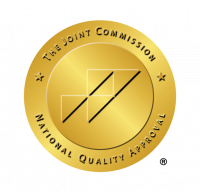When someone has a goal to quit alcohol, there are many paths to get there. Some choose the route of joining groups like Alcoholics Anonymous (AA), replacing their drinking habits with exercise, or signing up for online programs like Ria Health. However, another common method is to try and “white knuckle it” — or quit using nothing but pure willpower.
At first, white knuckling it might seem like the easiest option, simply because it has no cost and it may feel like something you can do on your own. However because alcohol withdrawals are notoriously difficult, it can be an extremely challenging path to take.
Below, you’ll learn more about white knuckling in sobriety, including its meaning, risks, and alternatives to make the journey easier.
What Does White Knuckling Mean?
What is white knuckling sobriety? Put simply, white knuckling’s meaning refers to the concept of quitting alcohol (or another substance) with nothing but willpower. It gets its name from the act of gripping something so hard that your knuckles start to turn white due to the stress and strain.
White knuckling doesn’t just mean not getting treatment for drinking. Because it involves trying to quit using just your mind, it can also often feel lonely and isolating. People who try it may feel that they have little to no support or coping skills to use when faced with withdrawals, triggers, and cravings. And if a relapse does happen, it can feel shameful and confusing to try to process it alone.
While research shows that some people are capable of quitting alcohol without treatment, white knuckling can be considered the most difficult way of doing so. In addition, many who successfully “white knuckle it” without support may not always be facing as severe of an alcohol use disorder (AUD) as those who haven’t been able to do it by themselves.
If you’ve been trying to quit and are feeling overwhelmed, there are ways to get support with convenient accessibility. For example, you can talk to a Ria Health team member to learn how you can get support via their virtual program.

Schedule a private call with a Ria Health team member and we can help you get started.
What Does White Knuckling Look and Feel Like?
On the outside, white knuckling addiction might look like quitting cold turkey, facing withdrawals head-on, and not reaching out for help when faced with triggers or cravings. Internally, this can come with a lot of challenges. You might feel:
- Lack of motivation, depression, or anxiety as your brain chemistry begins to rebound from long-term alcohol use.
- Significant cravings or a desire to drink.
- Agitation due to withdrawal symptoms.
- Shame or vulnerability in times when you might need extra support.
- Difficulty processing or framing your struggles with addiction in a constructive way.
Risks of White Knuckling Sobriety
The emotional ups and downs that can come with white knuckling are just part of its possible downsides. But because quitting alcohol affects both mental and physical health, there are also some more serious risks that can come with it. These include:
- Alcohol withdrawal. In the early days and weeks of quitting alcohol, withdrawals can be dangerous or even life-threatening. It’s important to speak with a doctor when quitting abruptly or drastically cutting back, especially if you’re used to drinking heavily.
- Relapse. Statistics show that relapse is a common part of recovery, and slipping up doesn’t mean you’ve failed. However, the stress of white knuckling by yourself may make you more prone to relapse.
- Substitution. Without any coping strategies, the stress of quitting may put you at risk of replacing alcohol with a new substance. In these situations, it might mean that you’re not addressing your addictive habits at their core.
Alternatives & Tips
If you’ve tried to white knuckle sobriety before and are looking for a better path forward, here are some tips and alternatives that could help:
Find Support in Loved Ones

Willpower is a powerful tool, but just because you have the will to quit drinking doesn’t mean you have to do it alone. Find support in your loved ones and friends — let them know when you’re having bad days, and don’t be afraid to tell them when you feel triggered or are having the urge to drink.
Being able to vent your feelings and frustrations can help you better manage them. Plus, research has shown that social support may be linked to lower substance use, greater emotional well-being, and better quality of life in recovery.
Add Coping Skills to Your Toolkit
It can be hard to seek help or even acknowledge that your alcohol use might be more serious than you initially thought. But the truth is, you don’t need to “tough out” every moment of trying to cut back.
While professional help can make a big difference, there are many coping tools that you can use regardless of whether or not you sign up for a treatment program. Some skills that you can start practicing today include:
- Make a plan for your triggers. Notice when you’re hungry, angry, tired, or lonely (HALT), and plan what you’ll do when these feelings come up.
- Practice letting your emotions run their course before taking action. Painful emotions can be so intense that they sometimes feel like they won’t ever end. But the truth is that emotions — especially the painful ones — are temporary, and it’s important to give yourself time to process them before making any rash decisions.
- Exercise regularly. Working out is a powerful way to release feel-good endorphins, manage stress, and support your brain health in recovery.
Ask About Anti-Craving Prescriptions
Anti-craving prescriptions are another evidence-based way to support yourself while quitting drinking. One of the most well-known options is naltrexone, an FDA-approved medication that can help limit the reward chemicals that your brain gets from drinking. Over time, it can help you feel less interested in alcohol as a whole.
Other medications like gabapentin, baclofen, or topiramate can also be options when you want to reduce your interest in drinking and/or manage cravings and emotions.
Additional Programs That Can Help
If you’ve been trying to white knuckle sobriety and are struggling lately, know that you don’t have to do it alone. Ria Health is one program that not only provides one-on-one support from medical professionals and coaches but also offers the option to use anti-craving prescriptions to help ease the physical and psychological symptoms that come with quitting drinking. The combination of professional support and medication-assisted treatment can drastically reduce the strain of white knuckling, relieve stress, and help you reach your sobriety goals. Sign up today to get started, or learn more about how it works.


